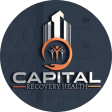Emotional flashbacks are a significant yet often overlooked challenge in the recovery process, particularly for individuals confronting substance abuse. These involuntary recollections can trigger profound emotional states that resonate with past traumas, complicating one’s journey toward healing. Understanding the specific triggers and manifestations of these flashbacks is crucial in developing effective coping strategies. By examining the implications of these emotional experiences, one can uncover essential techniques that not only promote resilience but also enhance the overall recovery journey. What are the most effective ways to navigate these tumultuous emotional landscapes?
Definition of Emotional Flashbacks
Emotional flashbacks, which often arise unexpectedly, are intense feelings that transport individuals back to past traumatic experiences without any accompanying visual memories. These emotional responses can be overwhelming, leading to feelings of anxiety, sadness, or anger that seem disconnected from the present moment. A person may experience a sudden wave of grief when hearing a specific song reminiscent of a painful event, even if no clear visuals accompany the memory. These examples highlight how emotional flashbacks can evoke powerful feelings tied to unresolved trauma, often complicating the recovery process. Understanding emotional flashbacks is essential for anyone seeking to heal from past traumas while pursuing a path to recovery. Therapeutic interventions that address underlying trauma can be beneficial in fostering healthier coping mechanisms, with support from professionals and loved ones aiding in managing these emotional responses. For a deeper understanding of emotional flashbacks, consider reviewing this scholarly article that provides scientific insights into these experiences.
Triggers and Symptoms
Understanding the triggers and symptoms associated with emotional flashbacks is critical for individuals on the path to recovery. Emotional flashbacks often arise from various triggers that can include specific situations, sounds, or even interpersonal dynamics evoking past trauma. Recognizing these triggers is essential, as they can lead to intense feelings of fear, shame, or abandonment, reminiscent of previous distressing experiences. Symptom recognition is crucial; common symptoms may include sudden emotional distress, hopelessness, or a sense of being overwhelmed. Individuals may also experience physical sensations like rapid heartbeat, sweating, or difficulty breathing, often intensifying feelings of confusion or isolation. For further reading on the psychological aspects of emotional flashbacks, the University of Massachusetts Medical School provides valuable resources.
Impact on Recovery Process
The profound influence of emotional flashbacks on recovery can create significant challenges for those seeking to overcome substance abuse. These flashbacks often evoke intense feelings, hindering progress and triggering a desire to revert to substance use. Self-awareness techniques are instrumental in recognizing flashbacks. By understanding trauma triggers, individuals can differentiate between past experiences and current reality. This empowers healthier coping strategies, avoiding substances. Effective trauma processing further mitigates flashback impacts. Therapeutic practices focusing on trauma help integrate experiences, reducing flashback intensity. Explore some of our treatment modalities designed to address these challenges.
Strategies for Managing Flashbacks
Steering through the challenges of emotional flashbacks requires a proactive approach to management, particularly for those in recovery. Mindfulness techniques play a critical role, focusing on the present moment and allowing individuals to observe thoughts without judgment, thus reducing the emotional charge of flashbacks. Grounding exercises, which anchor individuals in the present counteracting disorientation feelings are another valuable tool. Techniques like deep breathing or focusing on physical sensations can offer immediate relief, providing stability. Incorporating these strategies into daily routines enables individuals to navigate emotional landscapes more effectively, with therapy and support groups offering additional resilience-building resources. For more on therapeutic support, explore our program that integrates these strategies.

Final Thoughts
Emotional flashbacks greatly influence the recovery journey, often resurfacing unresolved trauma and complicating the healing process. Recognizing triggers and associated symptoms is crucial for effective management. Implementing strategies such as mindfulness and grounding exercises can empower individuals to navigate these challenging experiences. By fostering self-awareness and resilience, individuals can develop healthier coping mechanisms, ultimately enhancing their recovery and reducing the risk of relapse. Understanding and addressing emotional flashbacks is essential for sustained healing and growth. At Capital Recovery Health, we’re dedicated to helping you overcome the challenges of substance use and build a foundation for lasting strength and renewal. Our experienced team creates personalized, evidence-based treatment plans tailored to your unique recovery journey. Get the compassionate support you deserve by contacting us. Stay connected with us on Facebook for valuable insights, resources, and inspiring stories of hope.
Frequently Asked Questions
Can Emotional Flashbacks Occur During Sobriety?
Yes, emotional flashbacks can indeed occur during sobriety. These experiences often arise in response to triggers that evoke past trauma or distress. Recognizing these triggers is essential for effective coping strategies. Individuals may benefit from therapeutic support to develop skills for managing these flashbacks, allowing them to navigate their emotions more effectively. It’s important to approach these challenges with empathy and understanding, fostering a supportive environment for recovery and emotional healing.
How Long Do Emotional Flashbacks Typically Last?
Emotional flashbacks can vary considerably in duration, influenced by factors such as the individual’s history, current stress levels, and coping strategies employed. While some flashbacks may last only a few minutes, others can persist for hours or even days. It is essential to develop effective coping strategies, such as grounding techniques and mindfulness practices, to help manage these experiences. Seeking support from professionals or support groups can also be beneficial in maneuvering through these challenges.
Are Emotional Flashbacks a Sign of Relapse?
Emotional flashbacks can indeed be relapse triggers for individuals in recovery. They often evoke intense feelings reminiscent of past trauma, potentially leading to cravings for substances as a means of coping. Recognizing these flashbacks is vital. Developing coping strategies, such as mindfulness or grounding techniques, can help manage these emotions effectively. It is essential to seek support from professionals or support groups to navigate these challenges and maintain a healthy recovery journey.
Can Therapy Help Reduce Emotional Flashbacks?
Therapy can greatly help in reducing emotional flashbacks by facilitating trauma processing and equipping individuals with effective coping strategies. Through therapeutic interventions, clients can explore their past experiences, understand their triggers, and develop healthier responses to emotional distress. This supportive approach fosters resilience and empowers individuals to navigate their recovery journey more effectively. Engaging in therapy not only addresses immediate concerns but also promotes long-term emotional well-being and stability.
Is Medication Effective for Managing Emotional Flashbacks?
Medication can be effective in managing emotional flashbacks, depending on individual needs. Common medication types include antidepressants and anti-anxiety medications, which can help stabilize mood and reduce anxiety. However, it is vital to combine medication with coping strategies, such as therapy and mindfulness practices, to address underlying issues. Consulting a healthcare professional is essential for developing a thorough treatment plan tailored to your specific situation, ensuring a balanced approach to recovery.

